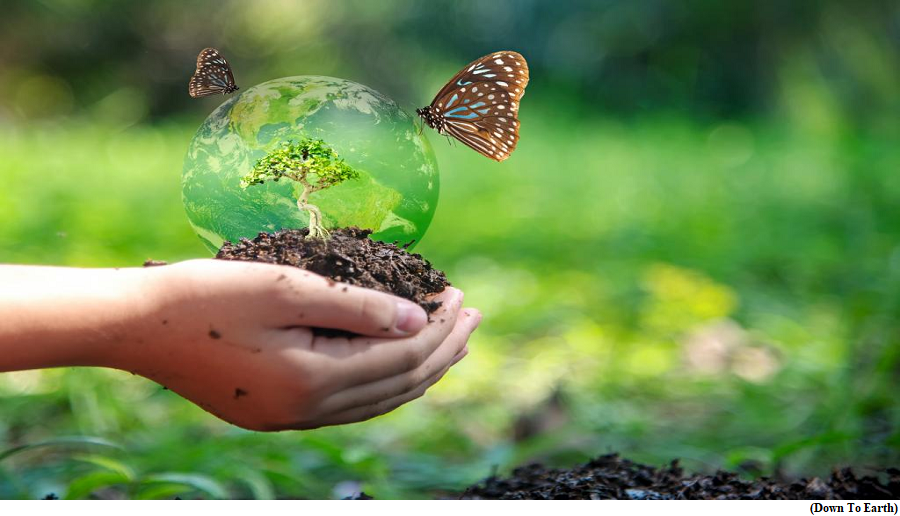Railways develops anti-freeze flushes and fuel tanks for journeys in J&K (GS Paper 3, Science and Technology)

Why in news?
- The process of linking Kashmir to Kanniyakumari, through the new Udhampur-Srinagar-Baramulla Rail Link (USBRL) project, poses a unique challenge to the Railways in maintaining water and fuel in liquid form in sub-zero temperatures during the winters.
- To circumvent the problem of water freezing in toilets and fuel tanks, engineers at the Rail Coach Factory (RCF) in Kapurthala have designed and implemented indigenous innovations.
Water in water tanks:
- While the LHB coach design is prominently used by the Railways, it did not have temperature control systems. In winter, temperatures in the J&K region plummet to minus-eight to minus-12 degrees Celsius.
- The RCF had designed double-walled composite insulated water tanks of capacities ranging between 450 litres and 685 litres.
- The water tank mimics thermoplastic bottles with two walls and an insulation layer of foam in the middle, which traps the air. This will maintain water in liquid form in sub-zero conditions from 16 to 20 hours. The water may remain cold but it won’t freeze.
Supply pipelines:
- In another innovation, the RCF has borrowed technology from the defence services to tackle the problem of freezing water in the supply pipelines.
- They are using heated pipes with a distributed heating system covered by insulation. The water will remain cold at five to eight degrees Celsius in liquid form.
- To contain energy loss, geysers will be deployed at the point of use in toilets, where only as much water as is needed by the users will be heated.
- A similar technology is being deployed in the fuel tanks for locomotives by the RCF.
Way Forward:
- The 111-km-long railway stretch from Katra in Jammu to Banihal in Kashmir is slated to be functional before March 2023.
SBSTTA 25 to gauge progress on Kunming Montreal Global Biodiversity Framework
(GS Paper 3, Environment)
Why in news?
- Governments and biodiversity experts are gathered in Nairobi, Kenya to guide the implementation of the Kunming-Montreal Global Biodiversity Framework, which was adopted in December at 15th Conference of Parties (COP15) to the Convention on Biological Diversity (CBD).
- The Subsidiary Body on Scientific, Technical and Technological Advice (SBSTTA-25) is taking place between October 15-October 19, 2023.

Details:
- The 25th meeting is the first time the group has met since the Framework was adopted in December 2022. Some 670 participants from 135 countries are in Nairobi for the meeting.
- Discussions are expected on the monitoring framework needed to support implementation of the framework.
About SBSTTA:
- Since its inception in 1995 in Paris, France, SBSTTA has produced a total of 250 recommendations to the Conference of the Parties.
- SBSTTA, established under CBD Article 25, convenes regularly to fulfill its mandate, which includes providing expert advice and recommendations related to the scientific, technical, and technological aspects of biodiversity conservation.
Focus:
- The primary focus of SBSTTA 25 will be on facilitating the implementation of the Kunming-Montreal Global Biodiversity Framework and monitoring its progress.
- The Global Biodiversity Framework, which supports the achievement of the Sustainable Development Goals and builds on the Convention’s previous Strategic Plans, sets out an ambitious pathway to reach the global vision of a world living in harmony with nature by 2050.
Aspects of implementation under consideration include:
- Monitoring Framework for the Global Biodiversity Framework.
- Mechanisms for Planning, Monitoring, Reporting, and Review.
- Approaches to identifying scientific and technical needs to support the Framework's implementation and its implications for the CBD’s work programmes.
- Plant conservation.
Way Forward:
- The recommendations made by SBSTTA-25 at this meeting will be sent for agreement at COP16, scheduled to be held in 2024.



